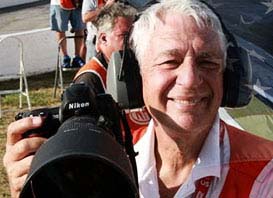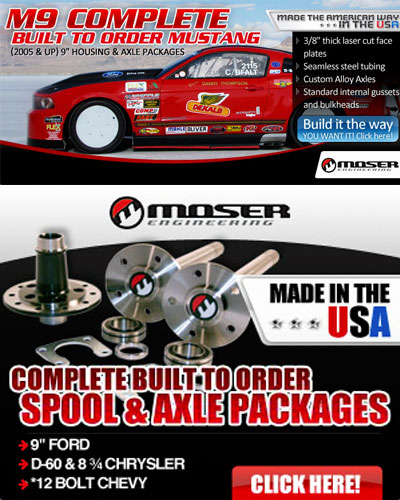JON ASHER: AN OBVIOUS CASE OF KNEEJERKISM
 Mr. Bennett’s “Welcome to the Participation Trophy Era” treatise was spot-on – and there are many topics with which I strongly disagree with Mr. Bennett.
Mr. Bennett’s “Welcome to the Participation Trophy Era” treatise was spot-on – and there are many topics with which I strongly disagree with Mr. Bennett.
NHRA’s hastily altered plans for the Countdown are as transparent as a plate glass window – and there was no need to cheapen qualifying for a chance to run for the championships in the manner in which they did.
Just one of the things they seem to have ignored is how the most exciting aspects of recent U.S. Nationals has been the frantic maneuvering by numerous competitors as they sought to move from eleventh or twelve into one of those treasured Top 10 spots. Those battles not only spiced up the action for the fans in the seats, it helped attract additional media coverage for both the event and the NHRA itself. In point of fact, NHRA often touted those very back-of-the-list points battles as just one more reason for the fans to attend.
NHRA’s concerns over a part-time competitor making it into the Countdown are little more than their own internal fear-mongering. Forty-one years ago, when the points system was markedly different, Top Fuel driver Rob Bruins won the championship at the late lamented Ontario Motor Speedway World Finals with a runner-up finish. Bruins made three final rounds that season, but didn’t win a single event. Was his championship somehow tarnished? Less impressive than had been others? Did the media ignore him because of his failure to win? The answers are no, no and no. And the only thing people remember today is that Rob Bruins was the 1979 NHRA Top Fuel champion, not how he got there.
A competitor like Billy Torrence poses no threat to the Countdown concept. All he did was come out with a competitive car and engine combination, and start kicking people’s asses. The fact that he needed fewer than 18 races to make the Countdown is a testament to his team’s proficiency and nothing more. If anyone’s whining about his successes it’s not his competitors, who have only themselves to blame to “letting” him win rounds and races at their expense. It’s their fault he made the Countdown. The program itself isn’t to blame, nor is NHRA for the way the Countdown program works.
Rewarding racers with Countdown positions because they showed up and tried to qualify is ridiculous, and not only makes NHRA appear foolish, it makes the entire sport appear that way. How does NHRA expect the straight-press media to cover this in any other manner than dismissively?
Do the High Sheriffs (I stole that from Dave Densmore) expect praise for essentially cheapening the value of qualifying for the Countdown? How is NHRA going to explain the fact that there are 13 drivers eligible for the Top Fuel title, but only 12 are still in contention in Funny Car?
Imagine a late 2019 conversation between a racer and his sponsor: “Well, we didn’t win the title, but at least we qualified for the Countdown.”
“We thank you for your efforts and are already looking forward to 2020.”
Now imagine that same conversation in late 2020: “Well, we didn’t win the title, but at least we qualified for the Countdown.”
“So did four other drivers who weren’t good enough to make the Top 10. Making the Countdown is no longer an acceptable goal. We’re going to have to re-think our program with you in the coming weeks.”
Think that’s a far out scenario? Guess again. The corporate world is a cold, dark place where results – real results -- are the only thing that counts.
Part-time competitors aren’t manipulating the system. They’re simply racing with less frequency but a lot more effectiveness than do many full-timers. We’ve all seen racers who we know from close observation are at least somewhat going through the motions. They have a sponsor, but not enough money to really be competitive for the championships. They want to win and try as hard as their budget and parts will allow, but after they’ve melted enough aluminum to make six million Mello Yello cans they may have no other choice but to back off a bit and maybe accept a second round loss when they’d rather try to be running a two second elapsed time.
Alas, this is just one more in a long list of ineffective, momentum-killing and counter-productive decisions made by the National Hot Rod Association. Maybe it’s a reflection of the fact that the overwhelming majority of the NHRA Board members have as much real world experience in drag racing as does my dog Cody – and he actually likes the activity.
https://t.co/Reh86mR5gM Publisher/Editor Bobby Bennett weighs in on NHRA's adjustment of the Countdown format adjustment #DragRacingNews #nhra - https://t.co/njjyD27lXh pic.twitter.com/D8ebD1dTR8
— Competition Plus (@competitionplus) January 23, 2020







































